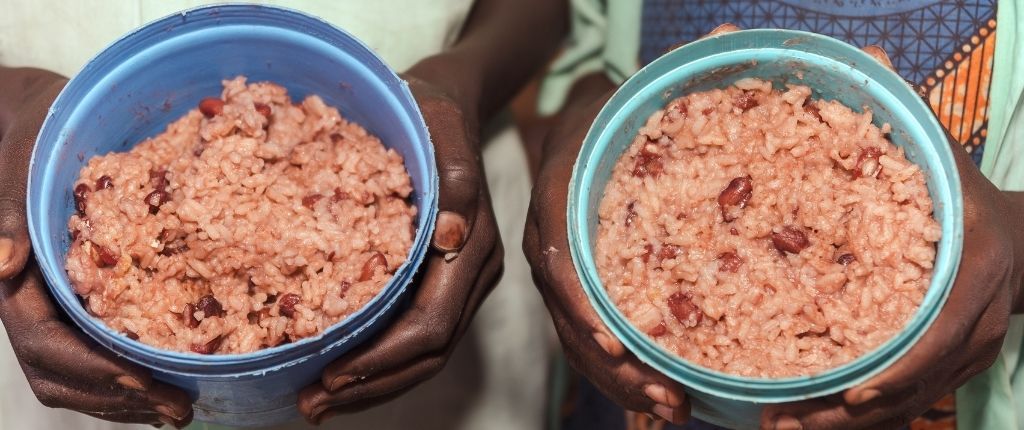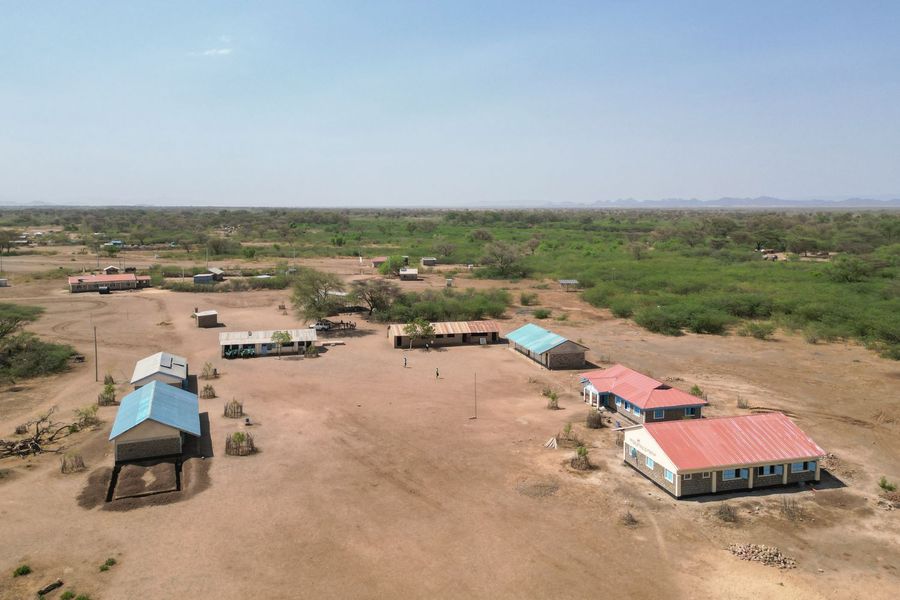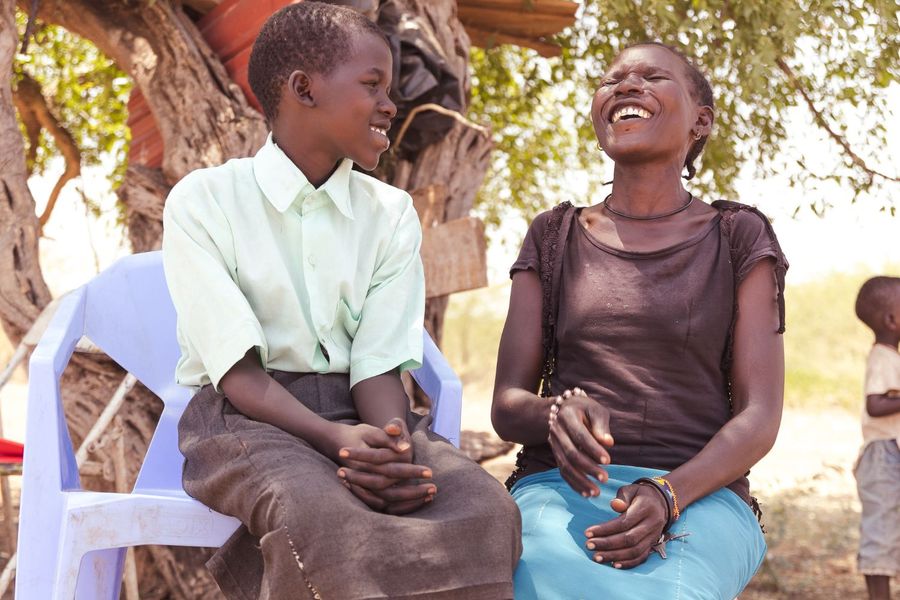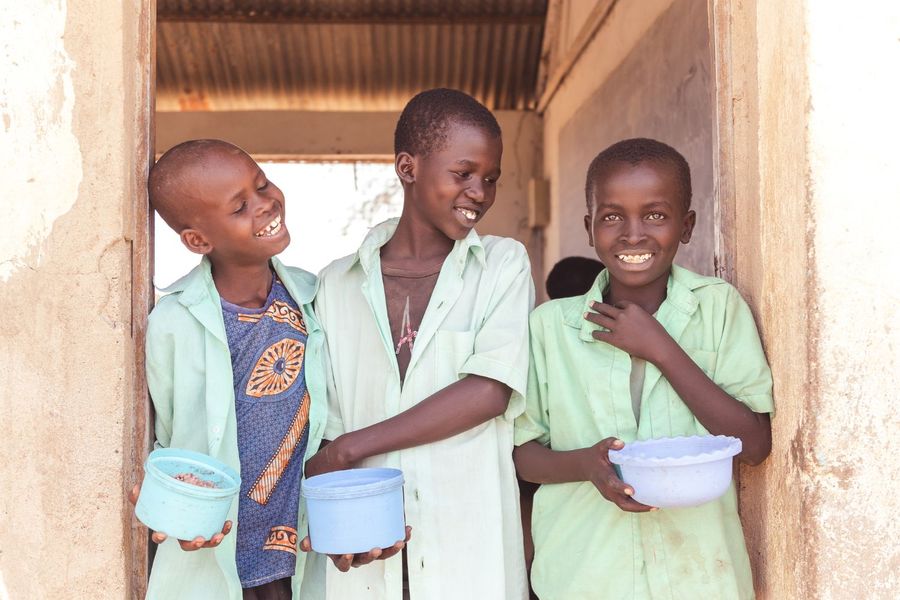
How school meals change lives
A story of hope and commitment at a primary school in northern Kenya
The AIC Lopur Primary School has been a pillar of education for children in Turkana and the nearby Kakuma refugee camp in northern Kenya since 1969. Despite its long history, the school faces great challenges, especially food shortages. This is where Malteser International's support comes in: thanks to regular school meals, children receive nutritious food. This not only improves their concentration and learning ability – it also enables them to attend school in the first place.

The school is located in the vast, arid semi-desert of the Turkana region. Amid dusty paths, thorny bushes, and scattered acacia trees, the school stands as a simple but vital place. The shimmering heat often lies like a veil over the sand-colored ground, and the wind carries fine dust through the open classrooms. The majority of families in this region traditionally live as semi-nomads. With their herds of goats, sheep, camels, and cattle, they roam the dry savannah in search of water and pastureland. But this ancient way of life is increasingly under pressure due to the effects of global climate change. Climatic extremes such as prolonged droughts and sudden, severe floods are increasing, threatening food and nutrition security and making daily life massively difficult.
Amidst these challenges, the AIC Lopur Primary School, which currently educates around 720 children, is an anchor. A place that offers education, stability, community, and a hot meal.
A school meal as a chance for education

When food became scarce during the drought in 2023, Malteser International stepped in: we provide rice and beans so that the children can continue to receive a hot school meal. We also distributed menstrual hygiene kits and planted trees that will provide shade in the future.
Dorcas, twelve years old and a sixth-grade student, knows exactly what a meal can mean. At home, there is often nothing for breakfast. The porridge at school is usually her first meal of the day. Her favorite subjects are Kiswahili, English, and science. "Later I want to be a doctor – not just for the money, but because I want to help my community," she says. Her mother, Apas Iria Nakali, who never went to school, considers it very important that Dorcas receives an education. "I am grateful that my children get food at school. It helps them learn. I pray that the supply can continue."
The ongoing need

But resources are scarce. Unfortunately, there is currently no breakfast for everyone. Funds that were originally intended for building new classrooms had to be used to purchase food. "This is not sustainable," explains Deputy Head Teacher Sarah Akiru Ekido. She also emphasizes the need for more varied nutrition: "If we had more variety in food – like vegetables or green beans – it would make a big difference."
Strengthening hope together
The AIC Lopur Primary School shows what is possible when education and nutrition are combined. Every meal, every support brings children like Dorcas closer to their dreams. Because learning does not begin in the classroom, but with a full stomach.
You can help. Donate for school meals, for health, for a better future. Even a small contribution can make a big difference.
(April 2025)








